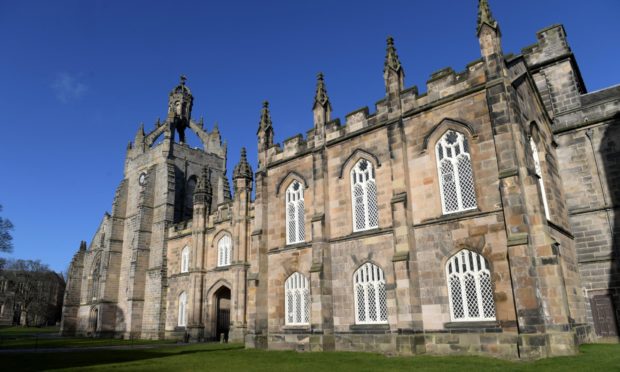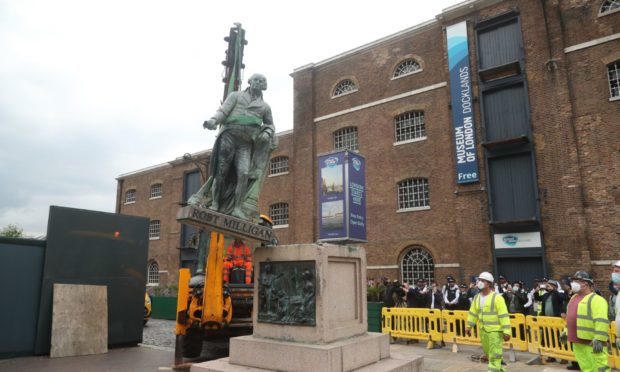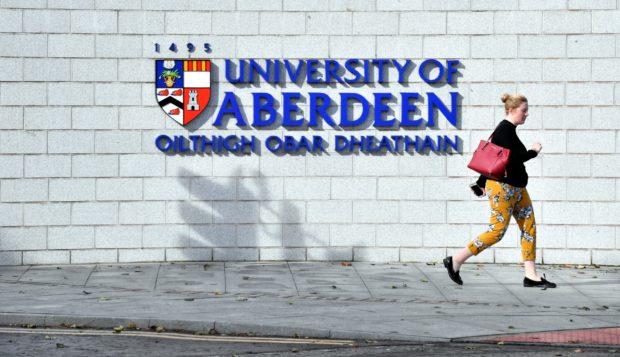Aberdeen University has said it must “acknowledge” its place in the legacy of a north-east teacher training fund that was created from the profits of slavery.
A spokeswoman for the ancient institution said recent research about the origins of the Dick Bequest would contribute to its work on “understanding and addressing” its historic links to the slave trade.
Last month, we revealed that historians David Alston and Donald Morrison had found evidence that the £1.7 million fund was a “particularly clear example” of the way profits from human trafficking and exploitation can be traced directly to today’s society.
The bequest was established to help train teachers and buy school equipment in Aberdeenshire and Moray following the death of Forres-born merchant James Dick in 1828, and continues to distribute grants almost two centuries later.
The historians found that Mr Dick had made his fortune from slavery, including through a business partnership with Robert Milligan, whose statue was removed last year by the Museum of London from its plinth in London’s Docklands.
Aberdeen University appoints two of the 10 trustees who oversee the fund today, with a further five elected by the Society of Writers to the Signet, and three by Aberdeenshire and Moray councils.
In the wake of the research, Aberdeenshire Council has said it will no longer support or facilitate the fund, while Moray Council is considering its options.
We recognise that many students who came to the university during the 19th century were able to do so because they were taught by those supported by the Dick Bequest and as such, acknowledge our place in its legacy.”
Asked about its involvement, a spokeswoman for Aberdeen University said: “The nature of the trust’s historical arrangement means that two of its governors are nominated by the university’s academic body senate.
“The scope of these trustees is limited and they do not have the power to change the purpose of the trust.
“The university has made a commitment to investigate the legacy of historic slavery in the university and north-east Scotland and, as part of wider measures to tackle racism and create an anti-racist university, a two-year research project funded by the university began last year with the appointment of a lecturer in the history of slavery.
“We recognise that many students who came to the university during the 19th century were able to do so because they were taught by those supported by the Dick Bequest and as such, acknowledge our place in its legacy.
“The work of David Alston and Donald Morrison is a valuable contribution to understanding how historic links to Caribbean slavery continue to affect the region and will contribute to the work of the university’s historic legacy of slavery advisory group in understanding and addressing that legacy.”
The Scottish Government is currently considering a letter from the two historians suggesting that the remaining money in the fund be repatriated to Jamaica.
However, Highland Council convener Bill Lobban believed the future of the bequest was a matter for the trustees.
The Dick Bequest need to step up to the plate and make a decision on what they want to do with the bequest that is before them.”
Teachers and schools in a small area of Highland, around Grantown-on-Spey, are eligible to apply for grants from the fund, although Highland Council does not appoint any of the trustees.
“I don’t know if there is a Highland Council position on this, but clearly it is a matter for the trustees of the Dick Bequest,” said Councillor Lobban.
“The Dick Bequest need to step up to the plate and make a decision on what they want to do with the bequest that is before them.”
The trustees of the Dick Bequest have been contacted for comment.


